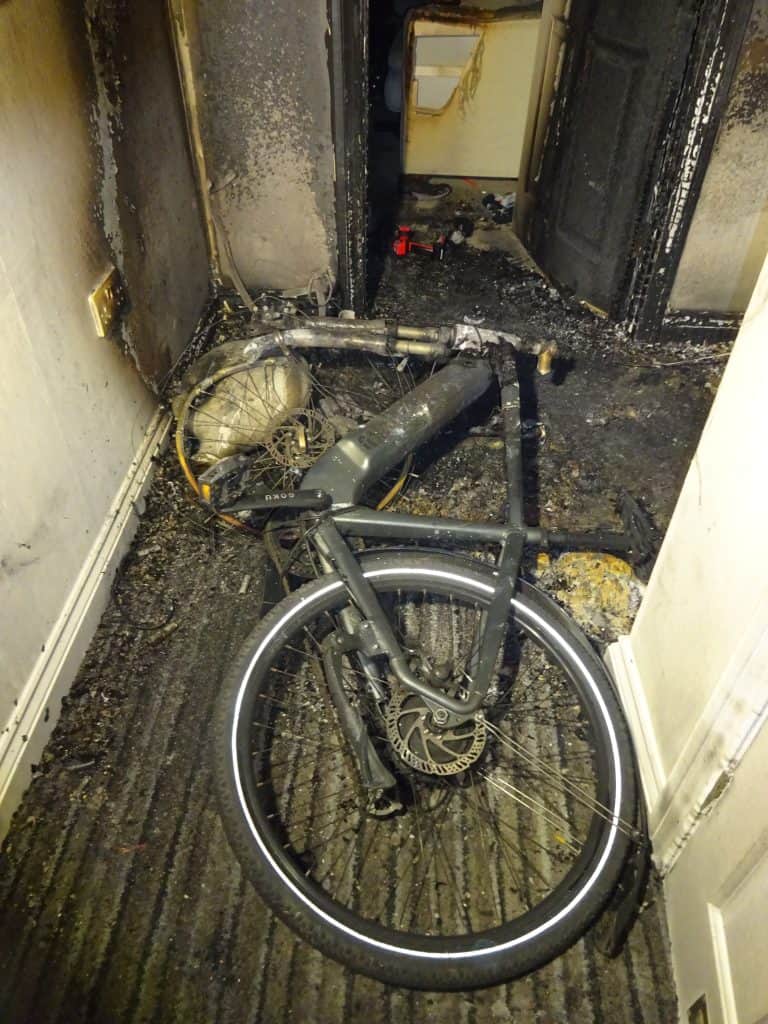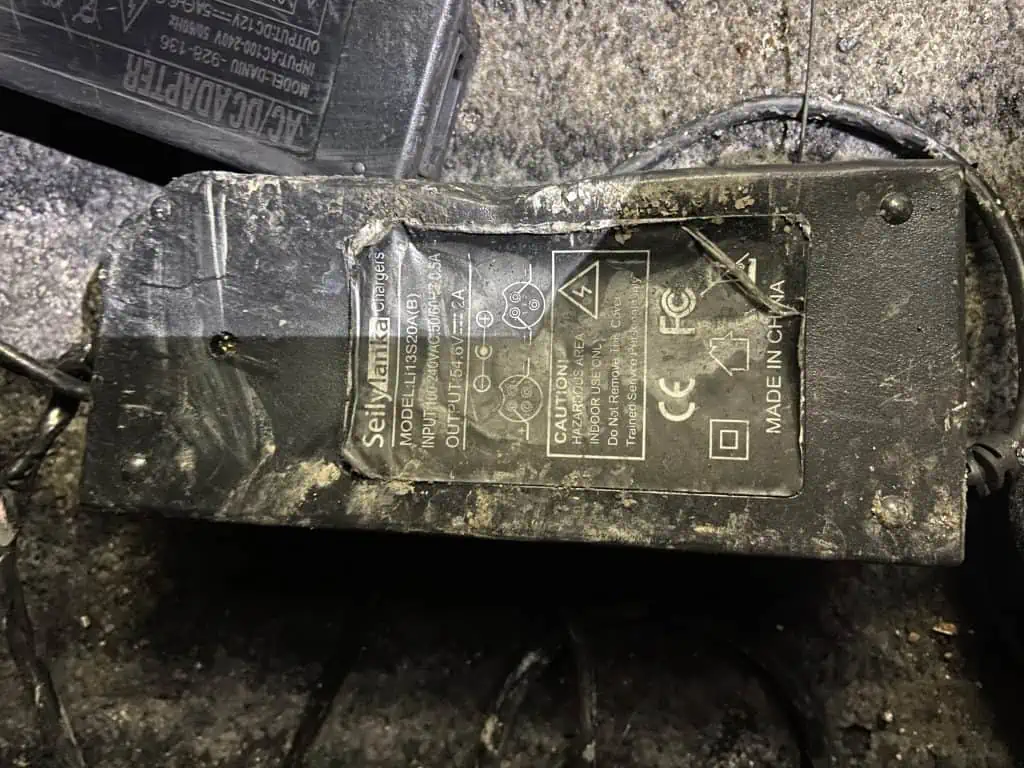Lithium-ion batteries used to power new urban transport can cause ferocious and explosive fires if misused or are of poor quality
E-bikes and e-scooters with lithium-ion batteries can catch fire quickly and with little warning. That’s the message from Royal Berkshire Fire and Rescue Service (RBFRS) which is issuing fire safety guidance to residents of Berkshire following an alarming rise in the number of serious fire-related incidents caused by these new modes of urban transport.
The danger occurs when e-bikes and e-scooters are left on charge and unattended in homes or in communal areas such as hallways and stairwells, blocking emergency escape routes in multi-occupied buildings. The risk increases particularly when they are charged indoors, especially overnight when occupants are asleep.
Last month, RBFRS was called to two serious incidents in Berkshire. On Thursday, 15 December 2022, fire crews were called to flats in Reading after a resident was woken by an explosion caused by a recently purchased e-bike charger from a popular online marketplace. The e-bike had been left on charge overnight in the hallway of a flat and the family, along with several other occupants of the building, had to be evacuated.
Only a week later, on Thursday, 22 December 2022, fire crews were called to a home in Slough after an e-scooter had caught fire in a ground floor bedroom resulting in the evacuation of three people, with a casualty treated for smoke inhalation and potential burns to their airways.

Paul Scott, Central Hub Prevention Manager, Royal Berkshire Fire and Rescue Service commented: “As the popularity for e-scooters and e-bikes grows, many people may have received them as Christmas gifts, or may be looking to purchase one in the January sales. DIY e-bike conversion kits are also proving popular. We are advising people to buy from reputable retailers, read the instructions carefully and never leave them unattended while charging, particularly overnight while sleeping. We would advise people to avoid charging them indoors if at all possible.
“A catastrophic failure of a battery and charging equipment can occur if left to overheat, often with very little prior warning. This may lead to an unusually intense fire that can give off toxic gases and large amounts of smoke. In the event of an e-bike, e-scooter or lithium-ion battery fire, do not attempt to put it out. Get out, stay out and call 999.”
Increase in e-scooter and e-bike fires
According to the National Fire Chiefs Council, there is only a limited amount data relating to the number of fires, but London Fire Brigade reported eight fires caused by e-bikes and e-scooters in 2019. This rose to 24 in 2020 and 59 by December 2021. While a freedom of information request (FOI) from ITV News recently revealed an increase of more than 400% in two years.
There has been a dramatic surge in sales of e-bikes and e-scooters. Most are powered by lithium-ion batteries, similar to the technology used in mobile phones and with increased use, comes a corresponding fire safety concern associated with their charging and storage.
An investigation by the consumer safety charity Electrical Safety First discovered nearly 60 listings on popular online marketplaces, such as Amazon, eBay, Wish.com and AliExpress, were found to be highly dangerous e-bike chargers. All 60 failed to meet UK safety standards.
Advice from RBFRS
Berkshire residents can help to protect themselves and others from the dangers of e-bike, e-scooter or lithium-ion battery fires by following this guidance:
- If possible, avoid charging e-bikes and e-scooters indoors.
- Avoid storing or charging e-bikes and e-scooters in communal areas as this can affect people’s ability to escape.
- Charge batteries whilst you are awake and alert and do not charge them if you are away from home.
- Avoid charging near combustible or flammable materials.
- Ensure your smoke alarms are working. If you charge or store your e-bike or e-scooter in a garage or kitchen ensure you install the correct detection equipment. We recommend heat alarms rather than smoke detectors for these areas.
- Always use the manufacturer approved charger for the product and carefully follow the instructions.
- Unplug the charger when you have finished using it.
- Check your battery regularly for any signs of damage.
- Do not overcharge your battery. Check the instructions for charge times.
- If you need to dispose of a damaged or end of life battery, don’t dispose of it in your household waste or normal recycling.
For further fire safety information, visit the RBFRS website.
Further information regarding the legal use of e-scooters is available from Thames Valley Police’s website.
